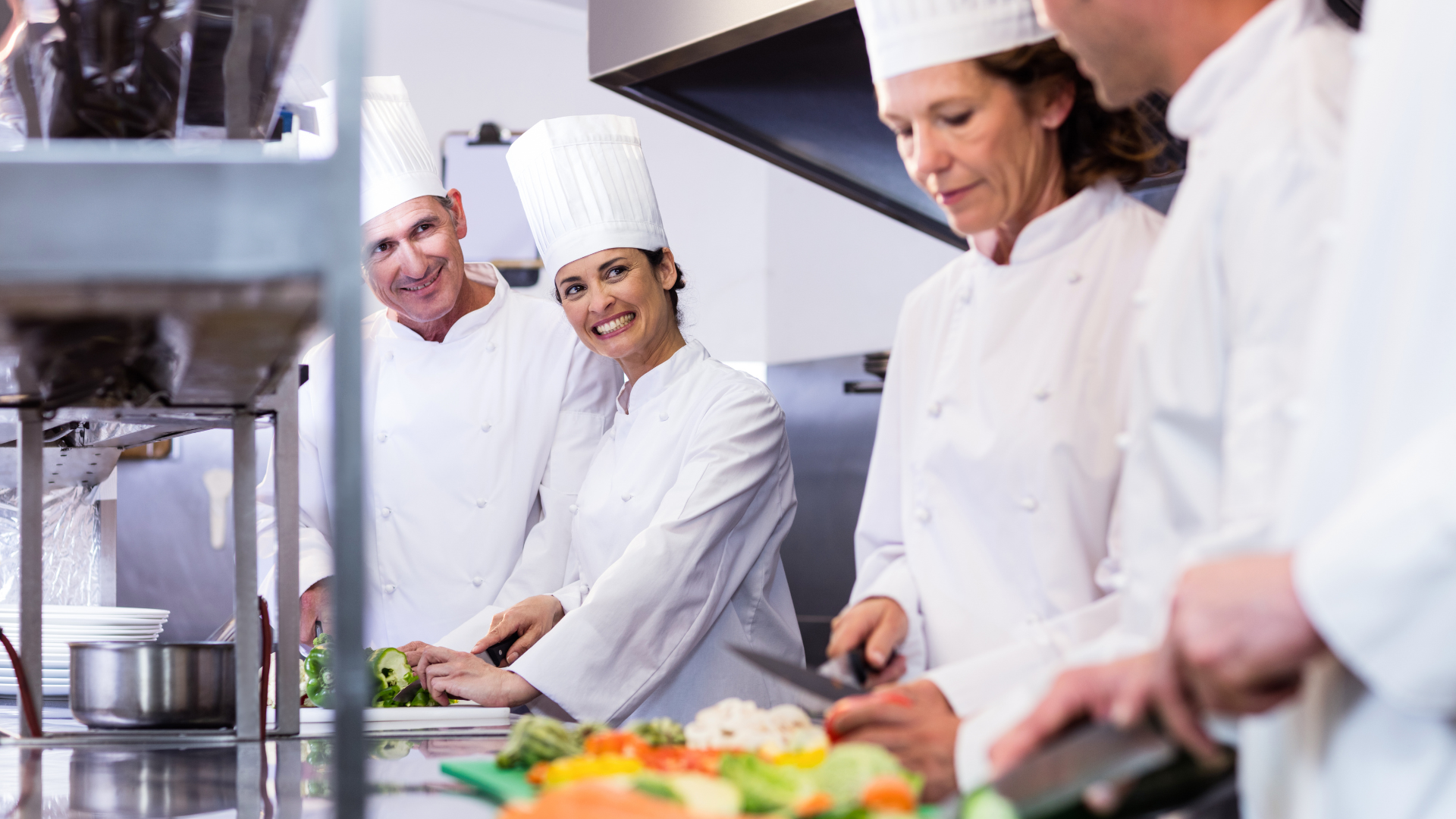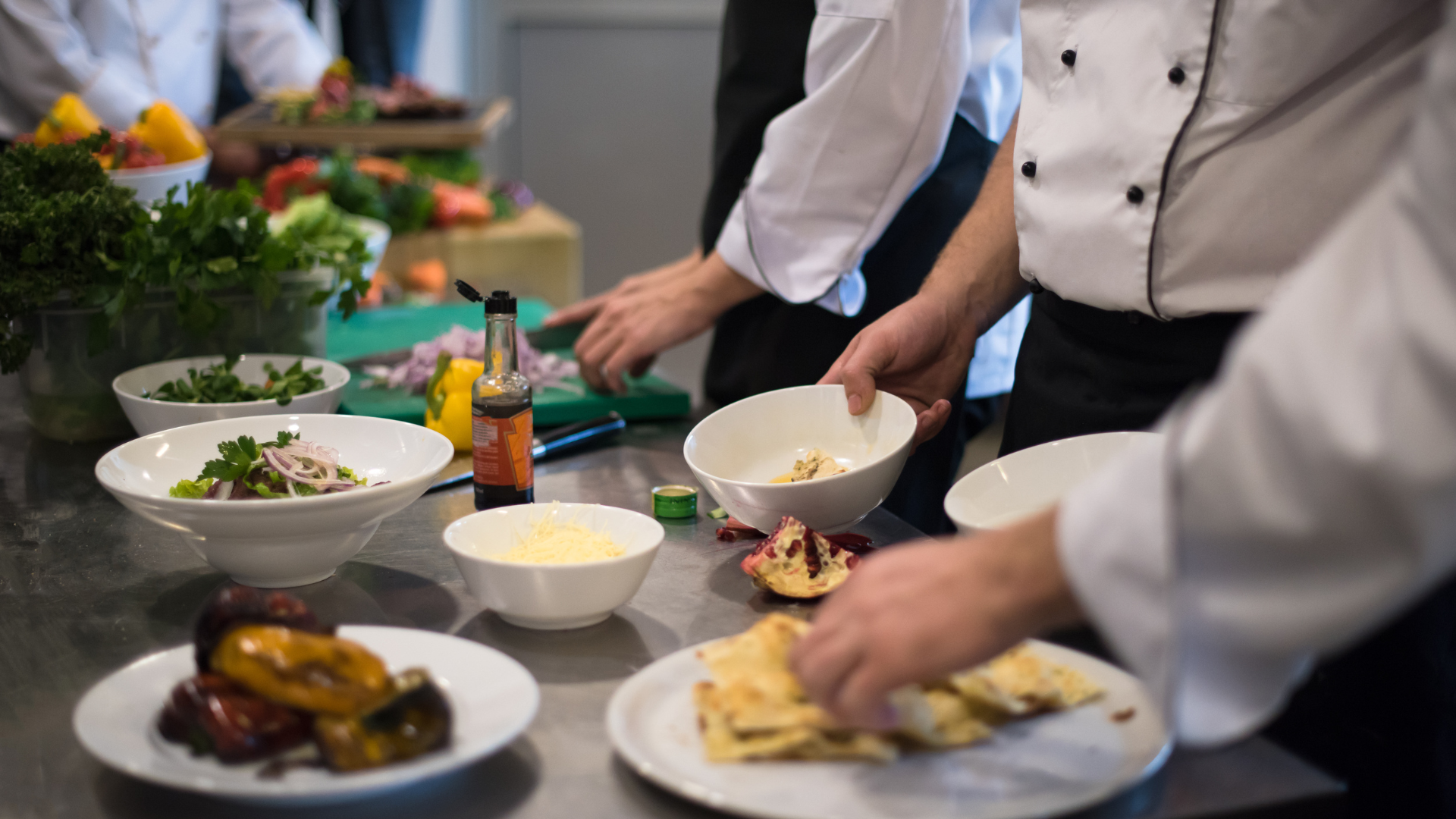Restaurant Organization and Duties of Key Positions
In a well-organized restaurant, various key positions play crucial roles in ensuring smooth operations and exceptional customer experiences.
Food and Beverage Manager
Responsibilities of a Food and Beverage Manager
A Food and Beverage Manager is a vital member of any hospitality team. Their responsibilities cover a wide range of areas such as budgetary controls, pricing and purchasing in all food and beverage areas, and overseeing the day-to-day running of the department. Additionally, they play a key role in the recruitment and supervision of a highly skilled team and are accountable for the creation and implementation of seasonal food and beverage marketing strategies, including input into menu planning.
The attached image shows the structure of restaurant staff from management levels down to floor staff levels.
The main responsibilities of the food and beverage manager can also include the following:
Ensuring that the profit margins are achieved
Purchasing, receiving and controlling inventory
Interviewing and selecting staff
Training of staff for supervisory level
Promotion of the beverage department
Co-ordinating requests from other departments
Complying with health and safety regulations
Ensure all departments are working efficiently
Responsibilities of a Restaurant Manager in a Well-Staffed Establishment
In a well-staffed restaurant or hotel, the restaurant manager plays a crucial role in managing the establishment. Their primary responsibilities include assigning customers to tables and dividing the dining area into sections for the waiting staff. They also record advance reservations, handle customer complaints, and ensure that the staff is executing their tasks efficiently.

Moreover, the manager is responsible for daily operations, staffing and human resources, finance, marketing, advertising, and public relations. They are also accountable for the following:
Assuring customer satisfaction
Upholding the employer's expectations
Ensuring health and safety protocols
Providing staff training and development
Conducting interviews and selecting new employees
Assistant Restaurant Manager

Responsibilities of an Assistant Restaurant Manager
The Assistant Restaurant Manager plays a crucial role in the successful operation of the restaurant. They work closely with the Restaurant Manager to ensure the restaurant runs smoothly on a daily basis. When the Restaurant Manager is unavailable, on leave, or absent, the Assistant Restaurant Manager will assume full responsibility.
The Assistant Restaurant Manager's responsibilities include daily operations, staffing, and ensuring that staff are trained in accordance with the restaurant's standards. They are also responsible for maintaining the health and safety of the guests and staff.
Other restaurant floor staff positions include the following:
Head Waiter
Responsibilities of the Head Waiter/Section Supervisor Position
The Head Waiter or Section Supervisor is tasked with managing a team of staff and overseeing their service of a specified number of tables, referred to as a station, in the restaurant or function.
Station Waiter
Station Waiter: What Does the Role Entail?
Also known as a chef de rang in larger hotels, this staff member works closely with the Station Head Waiter to serve customers.
Waiter/Waitress
Waiter/Waitress
This role involves working closely with the Station Waiter, and is typically an apprentice or an individual who is starting to develop their customer service skills.
Kitchen Duties and Key Positions
Head Chef / Executive Chef
The role of the Head Chef/Executive Chef in larger establishments is primarily administrative. However, in smaller establishments, the Head Chef may need to be involved in food handling.
Regardless of the size of the establishment, the Head Chef/Executive Chef plays a crucial role in the success of a restaurant or food service operation. Their leadership and culinary expertise are essential in maintaining a high level of quality and customer satisfaction.
The functions of the Head Chef / Executive Chef are:
Order the food
Engage the staff
Supervise the kitchen
Advise on equipment purchases
Responsible for guest satisfaction
Ensure food quality
The Head Chef / Executive Chef also has to work in conjunction with:
Other chefs and cooks
Food and beverage staff
Function staff
Kitchen stewards

Sous Chef
The Role of the Sous Chef in a Kitchen
As the Head Chef's right hand, the Sous Chef is responsible for stepping in when needed and ensuring that the kitchen runs seamlessly. They supervise kitchen staff to ensure that all activities align with the Head Chef's preferences. In larger kitchens, there may be multiple Sous Chefs, each with specific responsibilities for different services, such as banquets and grill rooms.
Other chefs and staff who work in the kitchen are listed below:
Station Chef
The Role of a Station Chef
A Station Chef is a senior chef who oversees a specific section of the kitchen, such as sauces and soups, fish, vegetables, roast or pastry. This role requires a high level of expertise and specialization. The Station Chef is responsible for organizing their section, assigning tasks to assistants, and plays a critical role in the overall success of the kitchen. They are the backbone of the culinary operation.
Commis Chef
The Role of a Commis Chef
At any station, the Station Chefs are supported by commis or assistant cooks. The amount of assistance required is determined by the workload, such as in the vegetable section which requires more preparation than the fish section. The Assistant Cook is typically capable of assuming significant responsibility and may even take charge of the section in the Chef's absence.
Apprentice
The Role of an Apprentice in a Kitchen
In order to gain a comprehensive understanding of all aspects of the kitchen, the apprentice must rotate through all sections of the kitchen to learn the trade. An apprenticeship coupled with formal education in culinary arts can provide a pathway to a successful career in the culinary industry. Even if they are not actively preparing food, apprentices still have the opportunity to observe and comprehend the required processes needed to prepare meals for a large number of people.
Food and Beverage and Other Departments
Interdependence of the Food and Beverage Department and Other Hotel Departments
In order to operate effectively, the food and beverage department relies on collaboration with other departments within the hotel. Clear communication and coordination are vital for ensuring successful outcomes. Here are some examples of how the food and beverage department works with other departments in a hotel setting:
Rooms Division
Coordination Between F&B and Rooms Division Departments in the Hospitality Industry
The F&B department and Rooms Division always work together to execute a variety of tasks. In certain hotels, the telephone department assists the F&B team in taking room service orders. Additionally, some housekeeping departments help the F&B department collect used trays and utensils from in-room guests on every floor. The F&B team's main responsibility is to assist the executive lounge in providing beverage and snack services to hotel guests.
Engineering
The Engineering Department is responsible for ensuring that all restaurant and kitchen facilities are kept in excellent condition. They work closely with the F&B department and perform their duties diligently. Their responsibilities include conducting regular maintenance and repairs for all kitchen equipment as needed or requested.
Security
Collaboration between F&B and Security Departments
The F&B department greatly depends on the Security department to maintain a safe and secure environment for its operations. Whenever large conferences or banquets are scheduled, the F&B team informs the Security department beforehand so that necessary safety measures can be taken to mitigate any associated risks. This collaboration ensures that all events are executed smoothly and without any complications.
Human Resources
The Connection Between HR and F&B Departments
Similar to the relationship between the front office and housekeeping departments, the human resources and food and beverage departments work hand in hand. The F&B department requires a significant number of casual staff during peak seasons and large-scaled events, and they heavily rely on the human resources department for support.
Sales/Marketing
Effective Communication between Food and Beverage and Sales/Marketing Departments
In order to fulfill the sales and marketing objectives set by the hotel each year, it is essential for the food and beverage department to maintain close communication with the sales and marketing team. This collaboration ensures that the banqueting and outlet menus are submitted for review by the sales and marketing team. By doing so, they can develop and implement sales and promotional strategies that attract more business to the company.
Accounting
Improving F&B Budgeting and Performance Analysis with Accounting Department Collaboration
To enhance budgeting and business performance analysis, the accounting department is available to counsel the F&B department. The head of the F&B department should collaborate with the accounting department to establish monthly or yearly targets for sales, profits, and cost control.
Purchasing
In the food and beverage industry, the purchasing team plays a crucial role in the daily operations of the department. The team is responsible for procuring food materials for use in the kitchen and at the bar. To ensure success, it's important that both departments work collaboratively when making purchase decisions, such as determining the types, quantities, and prices of the materials to be ordered.
Next Lesson
Classifying Market Segments and Types of Customers in the Food and Beverage Industry
Food and beverage services involve providing customers with food and drink in various types of establishments. The classification of these services can be diverse and lacks a defined standard due to the extensive nature of the industry.









